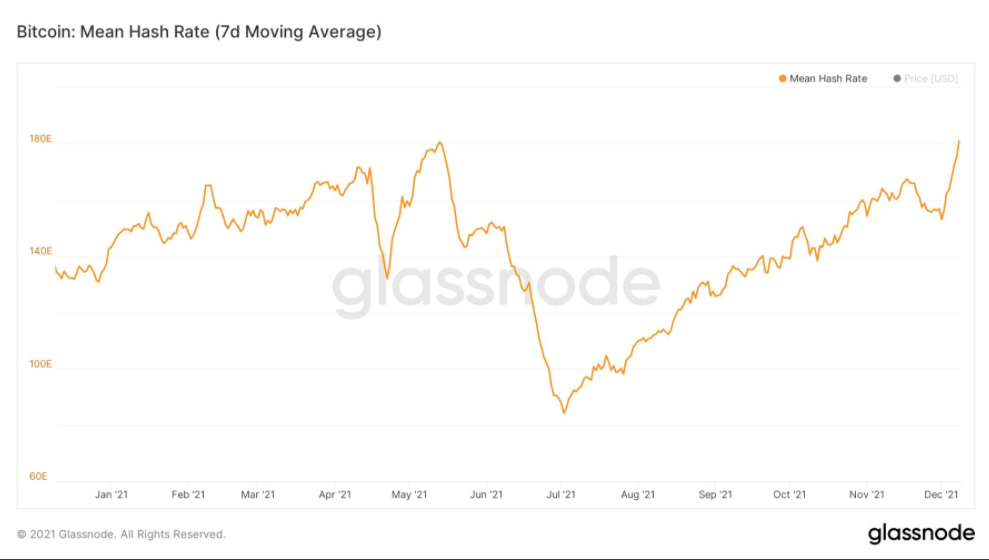Bitcoin’s hash rate is reaching all-time-high levels again (this is bullish)

(Getty Images)
Although the price of Bitcoin (BTC) is chopping about with all the certainty of a trainee hairdresser right now, one important level has been rising in a steady fashion – the OG crypto’s hash rate.
“Hash rate” refers to the total combined computational power that is being used to mine and process transactions on Bitcoin, or for that matter any proof-of-work blockchain.
Bitcoin’s hash rate is important because it’s generally regarded as a barometer for the health, and security, of the crypto’s network.
And if it’s viewed simply through an investment lens, then the higher the hash rate, and the healthier the network, the probability of BTC gaining value in price also increases. (Disclaimer: past trends are not always accurate prediction metrics for price.)
Pretty sure as of this morning #Bitcoin hash rate is at all time highs again (according to @slush_pool mining data).
Bullish! https://t.co/AyUfNUoQ2B
— Mission Bitcoin (@mission_bitcoin) December 8, 2021
After China’s nationwide crackdown on crypto mining in June, the global hash rate of Bitcoin dropped to as low as 84 exahash per second (EH/s). And that’s low – an all-time low. The network has now recovered this week, however, to lofty, all-time high levels around 175 EH/s.

And it’s creating reasonably high levels of optimism on Crypto Twitter, too…
On-chain data suggests #Bitcoin hash rate is back at all time highs.
BULLISH!
— The Moon Show (@TheMoonCarl) December 8, 2021
#BTC hash rate is close to making new ATHs and has been in a 6 month uptrend since the China mining ban
Capital continues to flow into #Bitcoin mining, further strengthening the network. Probably because #BTC miners are long term #bullish on the asset and continue to #HODL pic.twitter.com/gCnRD4lmJS
— Dan ⚡️ (@DanBTC916) December 7, 2021
According to the data on respected sites such as Glassnode (see chart above) and Blockchain.com, the global hash rate has increased by 108 per cent since its June low, with the Bitcoin network travelling at a seven-day average of 175 EH/s as of Wednesday.
That’s about 3 per cent short of an all-time-high rate, which was achieved in May 2021, when Bitcoin was at the peak of a several-month bullish cycle.
Before China decided to ruin the party for its crypto-loving citizens, Bitcoin miners had accounted for as much as 70 per cent of the global hash rate. The great mining migration to the United States, Russia, Malaysia, Kazakhstan and other nations has seen a more even spread.
That said, according to the University of Cambridge’s Bitcoin Electricity Consumption index, the US is currently estimated to have just under 43 per cent of the share.
Related Topics
UNLOCK INSIGHTS
Discover the untold stories of emerging ASX stocks.
Daily news and expert analysis, it's free to subscribe.
By proceeding, you confirm you understand that we handle personal information in accordance with our Privacy Policy.








